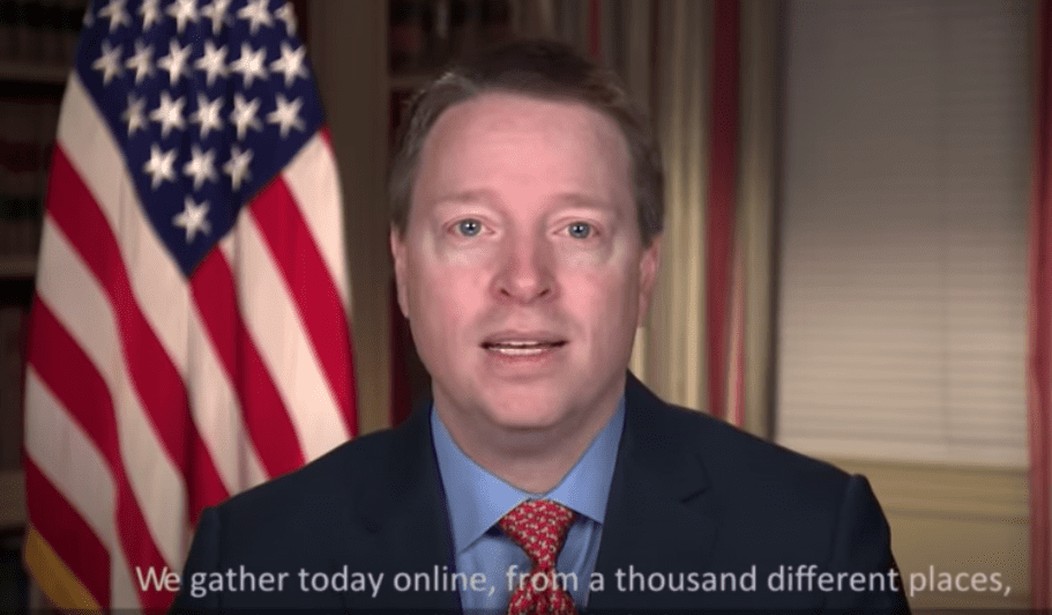In what is being described as a bold and stunning move by some China analysts, the Trump administration put out a 20-minute video on May 4. The direct appeal to Chinese citizens is narrated by Deputy National Security Advisor for Asia Matthew Pottinger, who speaks fluent Mandarin and has a degree in China Studies. Following this education, he was a journalist and then joined the Marines as an intelligence officer. He used a deep knowledge of Chinese history, sincerity, and his language skills to structure the appeal.
It is aimed directly to Chinese citizens on the 101st anniversary of the protests in 1919 against the traditional political elites. Angered by China’s acquiescence to Japan following the Treaty of Versailles, a movement formed. From Encyclopedia Britannica:
In 1915, in the face of Japanese encroachment on China, young intellectuals, inspired by “New Youth” (Xinqingnian), a monthly magazine edited by the iconoclastic intellectual revolutionary Chen Duxiu, began agitating for the reform and strengthening of Chinese society. As part of this New Culture Movement, they attacked traditional Confucian ideas and exalted Western ideas, particularly science and democracy. Their inquiry into liberalism, pragmatism, nationalism, anarchism, and socialism provided a basis from which to criticize traditional Chinese ethics, philosophy, religion, and social and political institutions. Moreover, led by Chen and the American-educated scholar Hu Shi, they proposed a new naturalistic vernacular writing style (baihua), replacing the difficult 2,000-year-old classical style (wenyan).
This movement culminated in the protests in 1919 that objected to China signing an agreement with Germany ceding the Shandong province. The Chinese government eventually dismissed the pro-Japanese ministers in government and refused to sign the agreement. This led to significant political and cultural shifts:
As a part of this movement, a campaign had been undertaken to reach the common people; mass meetings were held throughout the country, and more than 400 new publications were begun to spread the new thought. As a result, the decline of traditional ethics and the family system was accelerated, the emancipation of women gathered momentum, a vernacular literature emerged, and the modernized intelligentsia became a major factor in China’s subsequent political developments.
Clearly a significant historical event, the administration used the opportunity to appeal to the ideals of liberal democracy that were at the forefront of the New Culture Movement. The Chinese Communist Party has taken several blows in the past two years. The elections in Taiwan gave the pro-independence president a second term. Massive protests in Hong Kong, economic slowdown as a result of U.S. tariffs, and, of course, the pandemic have all challenged the regime in various ways.
The video appears to be an impassioned appeal for the Chinese people to demand more freedom and a voice in how they are governed. Using history and current events, he talks about scholars, political and religious leaders who have stood up to the Communist Party. He also points to doctors and journalists who have been silenced during the pandemic as heroes who have paid a significant price.
Interestingly, Pottinger also speaks to the populist movements in Brexit and the U.S., encouraging the Chinese people to consider populism rather than nationalism. He said this was less about left versus right than it was the bottom challenging the top. He stated:
It is about reminding a few that they need the consent of many to govern. When a privileged few grow to remote and self-interested populism is what pulls them back or pitches them overboard. It has kinetic energy.
This rhetoric mirrors President Trump appealing directly to the protestors in Iran as they rallied against the regime. When autocrats and authoritarians are in power, it is their citizens who suffer most. It is also their citizens who ultimately must force a change. The West has spent decades trying to induce change with economic incentives and bringing China into global institutions. Their response has been waging economic, intellectual, and cultural war against us.
At this point, the only option for change may be to appeal the history and suffering of the Chinese people to be their own agents of change. Pottinger’s direct appeal may be the first step in blatantly countering the regime’s own disinformation inside China itself. Only time will tell if the citizens are open to determining a freer, more democratic future.
Editor’s Note: Want to support PJ Media so we can keep telling the truth about China and the virus they unleashed on the world? Join PJ Media VIP and use the promo code WUHAN to get 25% off your VIP membership.










Join the conversation as a VIP Member